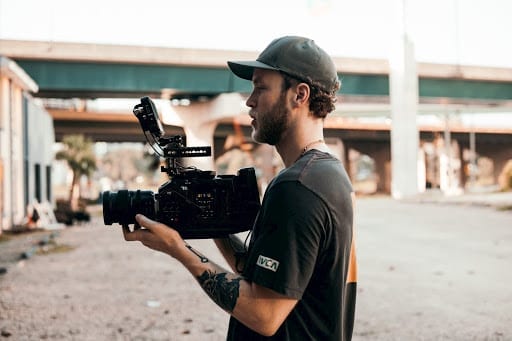How To Get Your Independent Film Financed
Figuring out how to finance an independent film can be just as hard — if not harder — than actually coming up with and developing a strong idea or screenplay. Oftentimes, independent filmmakers determine the type of film they’ll make based on the amount of money and resources they will be given or have access to while making the film.
Contrary to high-budget, Hollywood productions — where all the financing is managed by major studio or production companies — independent films will have to deal with the intricacies of funding a motion picture on their own. This can typically limit or restrict creativity or ideas independent filmmakers may have in mind because of the lack of funds to make them a possibility.
Whether you’re attempting to produce an independent film with a budget of $500,000 or $5,000, you will need to come up with funding strategies and a plan for securing all the necessary funds you’ll need to shoot the film. You’ll also need to be versatile and creative with the budget you’re given in order to produce a successful film.
If you’re interested in making a film, you’re not only going to need to learn the creative and artistic side of it, but you’re also going to need to learn the business side of it as well.
The goal of this post is to help clear out some of the fog and uncertainty when it comes to independent film financing. It will serve as a mini film financing 101 course that will show you how film financing works and will cover a range of funding methods for independent movies, such as crowdfunding, grants and fellowships, investors, and distribution agreements.
Now, let’s take a closer look at some of these methods below.
Looking For Tips On Short Film Funding?
Crowdfunding

Crowdfunding can be a viable way to achieve funding for your production. However, before you even think about using a crowdfunding site, you should feel overly confident and secure with your project. It needs to be a project you find value in and are immensely passionate about because you are essentially pitching your film as you would to investors or producers.
If you’re a beginner filmmaker with little experience and credits to your name, it may be harder to get people to donate to your film.
However, a great strategy to use when pitching on a crowdfunding site is to create incentives and reasons for people to want to donate to your film. Many filmmakers offer rewards to their donors — such as film credits, merchandise, a meeting with the director and or other major crew members, DVDs, premiere seats, etc. If it’s possible, it would be a good idea to find crew members or talent with already established visibility and past credits. This will give donors more incentive to help fund your film.
Try to get your donors involved as much as possible with the production so that there’s value in it for them. It’s also important that you communicate with your donors on the specific assets you’ll be allocating the money towards so they have an idea where their money is going.
Also, don’t be afraid to ask friends and family to help with funding — this could also be a great option if they want to see your production succeed. Offer them the same incentives as you would to donors on crowdfunding sites to give them even more reason to want to help out.
Check out this list of great crowdfunding sites you can use to find a community of passionate movie-lovers willing to help get your story made.
Grants & Fellowships

Film grants are another great way to fund your film. They essentially give independent filmmakers the most freedom of all other funding opportunities because grants are funds that don’t need to be repaid or returned to any investors.
If you’re looking to maintain all of your creative freedom and vision for your film, looking into grants could be a great option.
Take a look at some examples of grants that offer to fund independent filmmakers.
Grants are offered by a large number of organizations, each with their own specific personal and filmmaking qualifications you must have before applying. Make sure you take the time to research and craft an application for the organizations offering grants, as this will give you a much better chance of obtaining funding from them.
Fellowships, on the other hand, are similar but are also different in many ways. Unlike grants — where you’re granted freedom with the funds — fellowships will require additional commitments and a residency where you will often receive training and housing of some sort while making your film.
Fellowships can be very useful for filmmakers seeking guidance, support, and connections with the industry. If you’re someone who may be looking to get your foot in the door, a fellowship can be a great opportunity to open the door. You’ll likely get a chance to meet and pitch your film to known industry professionals while under great mentorship programs.
Even though Fellowships can be a great opportunity to learn and grow your filmmaking skills and connections, they can often pull you away from your independent production or cause it to take longer to produce. It will be up to whether you’re interested in finding funding immediately for your film or if you’re willing to get it made over a period of time while attending a Fellowship.
Private Investors

As an independent filmmaker, you’re likely going to have a difficult time finding funding for your project. Oftentimes, you may feel like your only option is to take money out of your own pocket to get the equipment, materials, actors, licenses, etc, you need to make your film. This is something you should avoid doing.
If you’re able to partner with potential investors, this could be a great way to reduce financial risks on your end and can give you the funds you need to produce your film. However, working with investors doesn’t mitigate the risk completely, because — depending on your investors — you will likely need to give them a return on investment. Meaning once the film is completed, they will expect their money back, along with any profits and or interest agreed upon in the agreement.
Unless you have wealthy connections or family members, finding an investor for your independent project will be challenging. This is mainly because independent films, oftentimes, aren’t that profitable. Most investors are looking for ways to make money. Unless you have an experienced production team with well-known actors and crew and a well thought out business plan, investors will probably look the way when you pitch to them.
Again, however, if you know of someone willing to invest in your project, that’s great! But don’t expect investors who are unfamiliar with you to pick up your project if you don’t have a solid business plan with distribution and marketing strategies, as well as well-known actors and crew.
Distribution Agreements

Independent filmmakers also have the option to enter into pre-sale agreements with film distributors as a means to finance a film. Film distributors can arrange a contract with you if they see overall profitable strength and marketability in your film. This will typically be based on your concept and script, actors, crew, and business plan. If a distributor sees commercial potential, they will be more than happy to work with you.
Once the agreement is set and you’re given a set price for the film, you’ll have a couple of options moving forward. You can either head to the bank and take out a loan using the pre-sale agreement as collateral, or you can receive a direct payment from the distributors.
This is a great way to fund an independent production, but you should be informed of what the agreement will entail for you. Generally, the distributor will give you a set of requirements, deadlines, ideas, and talent they’d like you to use for the film. In some cases, you’ll be given entire creative freedom, but in others, your film may be subjected to other people’s visions.
Conclusion
As we stated before, independent film development financing is not an easy task. It’s arguably the most important aspect of independent filmmaking because it acts as the bridge from having nothing, to getting your film made.
Independent filmmakers, from experienced to inexperienced, have many options for funding their movies. Even though finding movie financiers or distributors to help finance your film can seem impossible if you’re just starting out, there are plenty of other options out there — such as crowdfunding, asking friends and family, competitions, grants, and fellowships — that can offer you the funds you need for your film.
The Film Fund is also a great resource for any independent filmmaker looking to receive funding for their projects. Check out our one-sentence pitch competition for the chance to win up to $10,000 in funding for your film.
thanks for the post
You’re welcome! 🙂
Thanks for the tips but as one passionate about making a documentary on some salient women health issues aren’t there willing international orgs that fund such women educative programmes. Thanks.
Thanks for your comment, Ijeoma! You can enter our funding contests, here, and I would also recommend checking out Women in Film.
Tips for film funding
Where do I go for list of independent producers/ film projects needing funding
Hi, thanks for reaching out! We don’t have a list per se, but when you enter our contests you join a network of film producers who you can chat with your project about.
Where do I go for list of independent producers / film projects needing funding
Hi, thanks for reaching out! We don’t have a list per se, but when you enter our contests you join a network of film producers who you can chat with your project about.
I need a debt based Film production loan of three million dollars to produce film in UK and Nigeria.
Hi John, thanks for your comment! We fund short films up to $10,000. You can learn more about our funding opportunities and enter here.